
EU helps young people in Armenia gain confidence through skill-building clubs
The EU is helping young people across Armenia to shake off stereotypes, strive for self-development and be more socially engaged in their communities through SKYE clubs.
Yeva Demirchyan lives in the province of Ararat and has been the leader of her local SKYE club since 2018. According to the young woman, it did not take long for ‘club-goers’ to change their mindsets and develop their social and teamwork skills.
“Our members have learnt how to take care of their communities, take risks, and be more confident and progressive in their thinking. Compared to how they were when they first joined the club, the difference is enormous,” says Yeva.
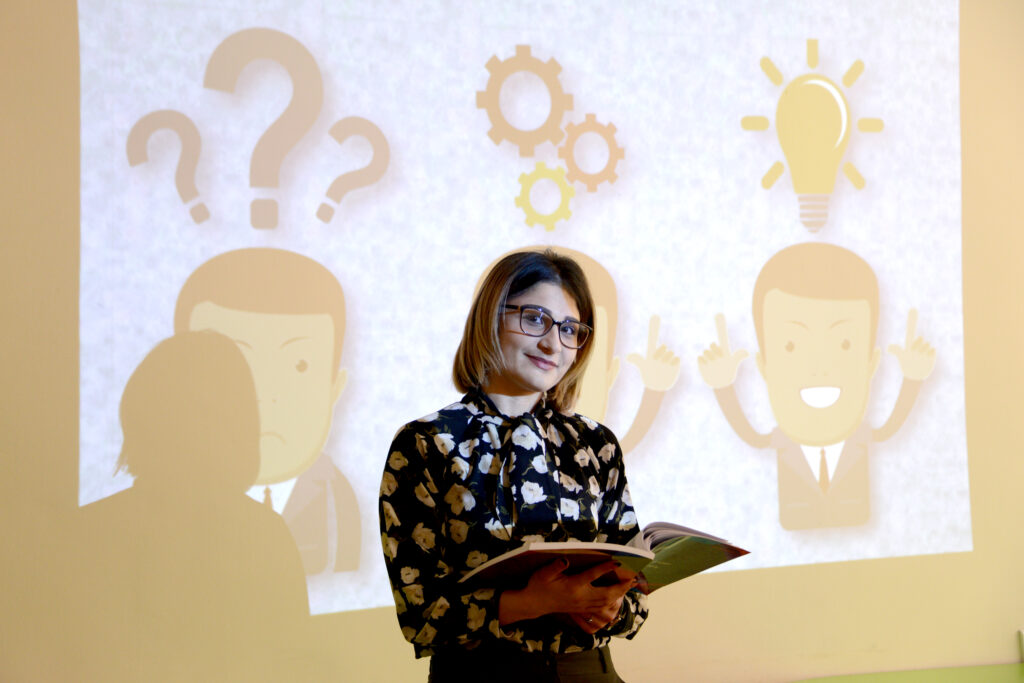 Yeva Demirchyan
Yeva Demirchyan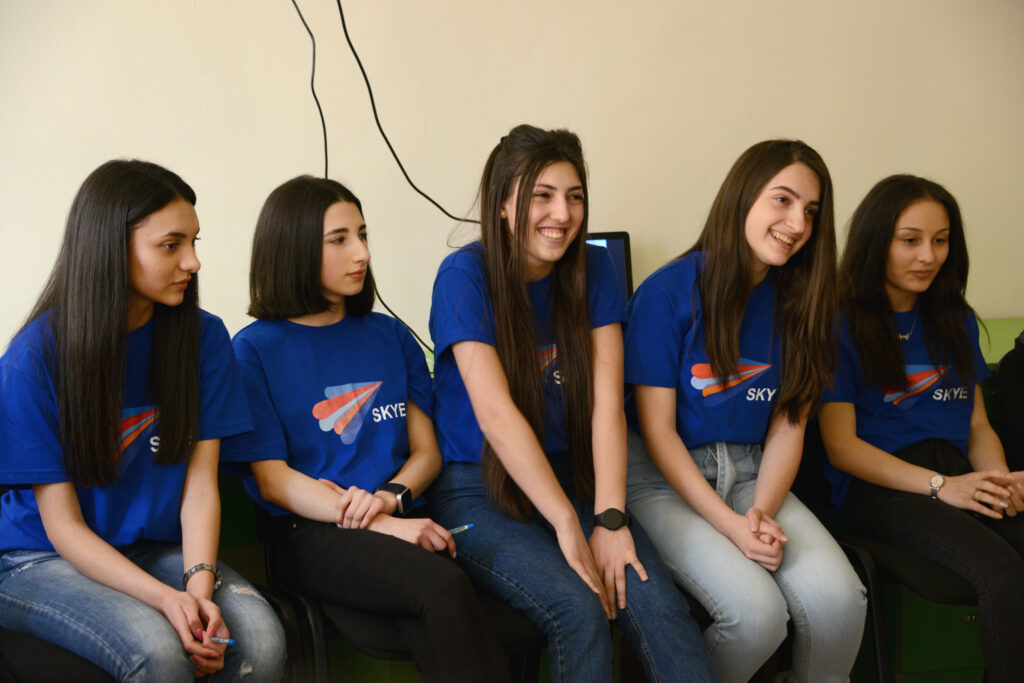 SKYE club in Ararat province
SKYE club in Ararat province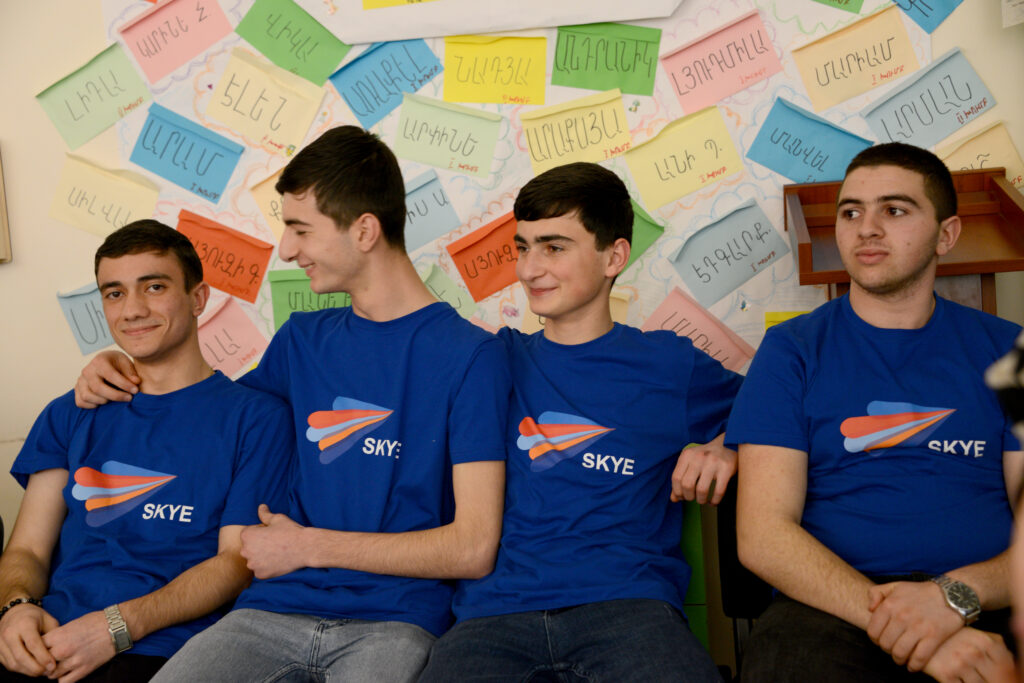 SKYE club in Ararat province
SKYE club in Ararat province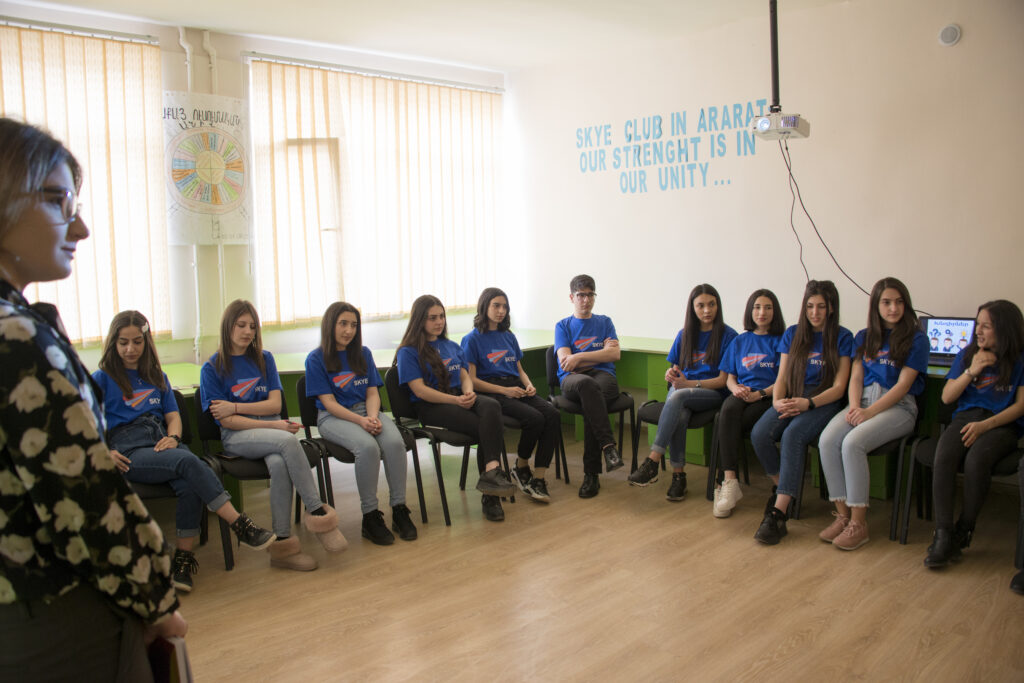 SKYE club in Ararat province
SKYE club in Ararat province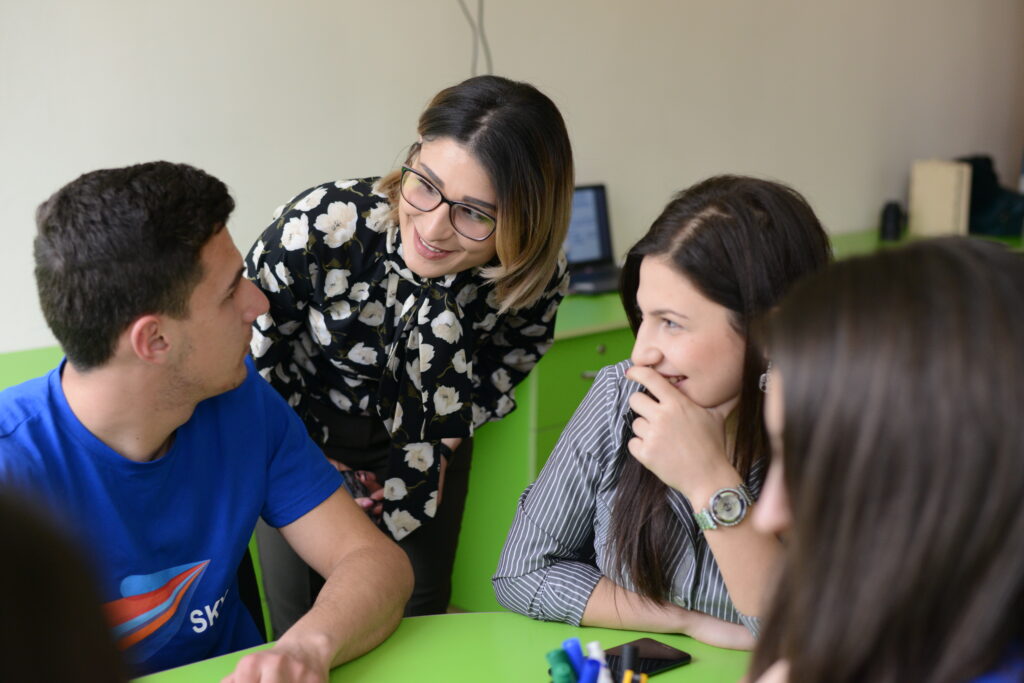 SKYE club in Ararat province
SKYE club in Ararat province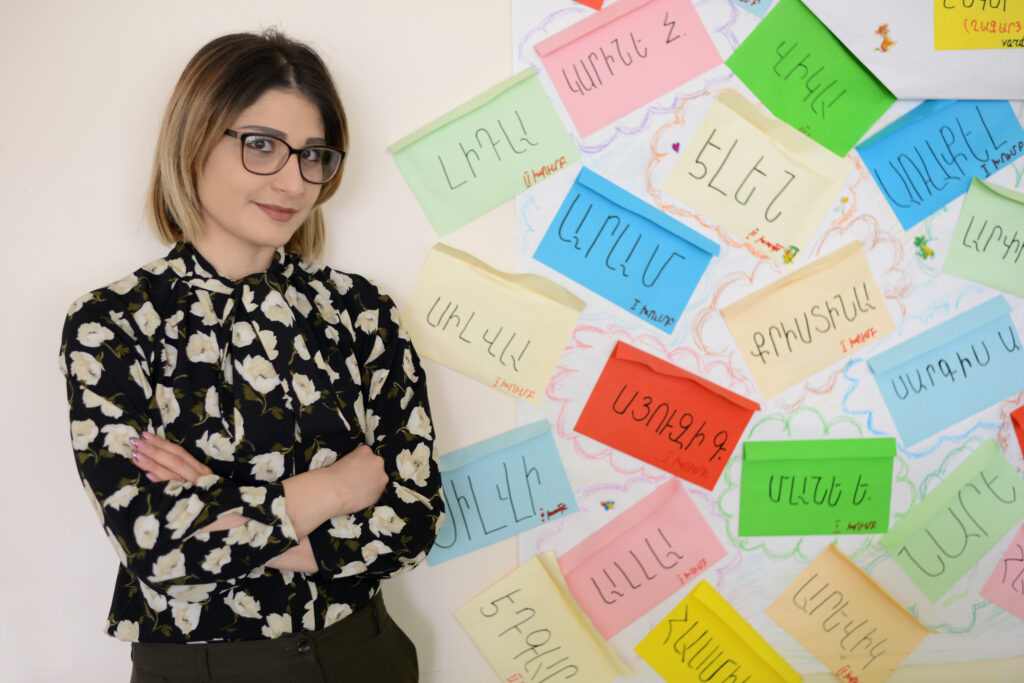 Yeva Demirchyan
Yeva Demirchyan
The SKYE club in Ararat opened in February 2018 as part of the EU project EU4Youth – SAY YES Skills for Jobs. The project is being implemented by World Vision Armenia in three Armenian provinces: Ararat, Gegharkunik and Lori. The aim of the SKYE clubs is to develop young people’s socio-economic abilities through informal learning.
“SKYE clubs have four focus areas: active politics, performance, leadership and social entrepreneurship. We develop five skills and nine values, including trust, respect, responsibility and honesty. And all this has a really positive effect on our members,” explains Yeva.
According to the young leader, the club’s activities have already borne fruit – young people in her province have become more caring about their community and face fewer difficulties when applying for jobs.
Yeva and her colleagues look for community problems that can be solved with the support of SKYE club members and partners
“Our members re-painted more than 40 desks at the local college. As they were working, their enthusiasm was so contagious that random passers-by decided to join them. We also distributed leaflets to residents, urging them to donate books to their local library,” Yeva says.
Project assistant Kristina Aslikyan admits that at first it was hard to explain what SKYE was to people in her province: “People associated the word ‘club’ with nightclubs, but now the attitudes are slowly changing.”
According to the project assistant, each of the three provinces has its own characteristics. SKYE club members in Gavar, the province of Gegharkunik, are mostly young men, while there are more young women in the clubs in Ararat and Lori.
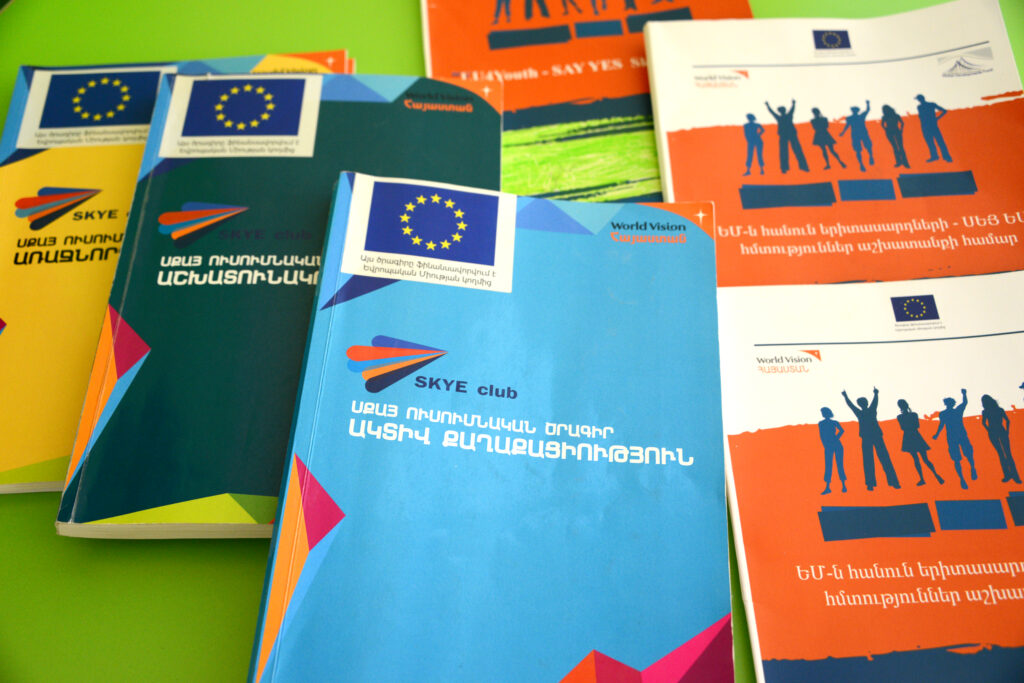 Publications available at SKYE club in Ararat province
Publications available at SKYE club in Ararat province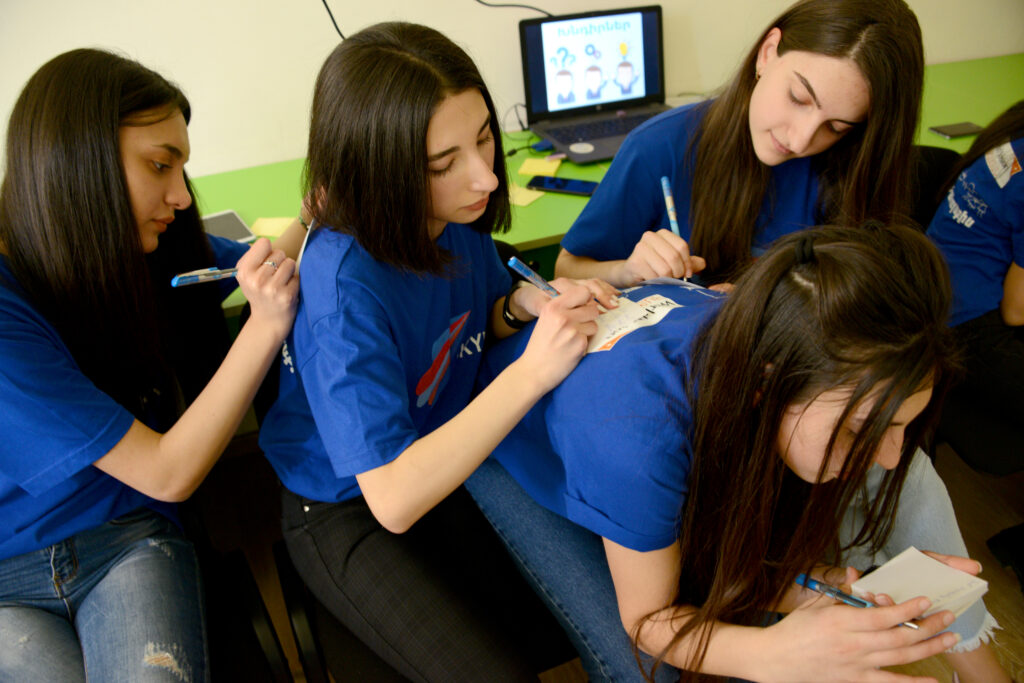 SKYE club in Ararat province
SKYE club in Ararat province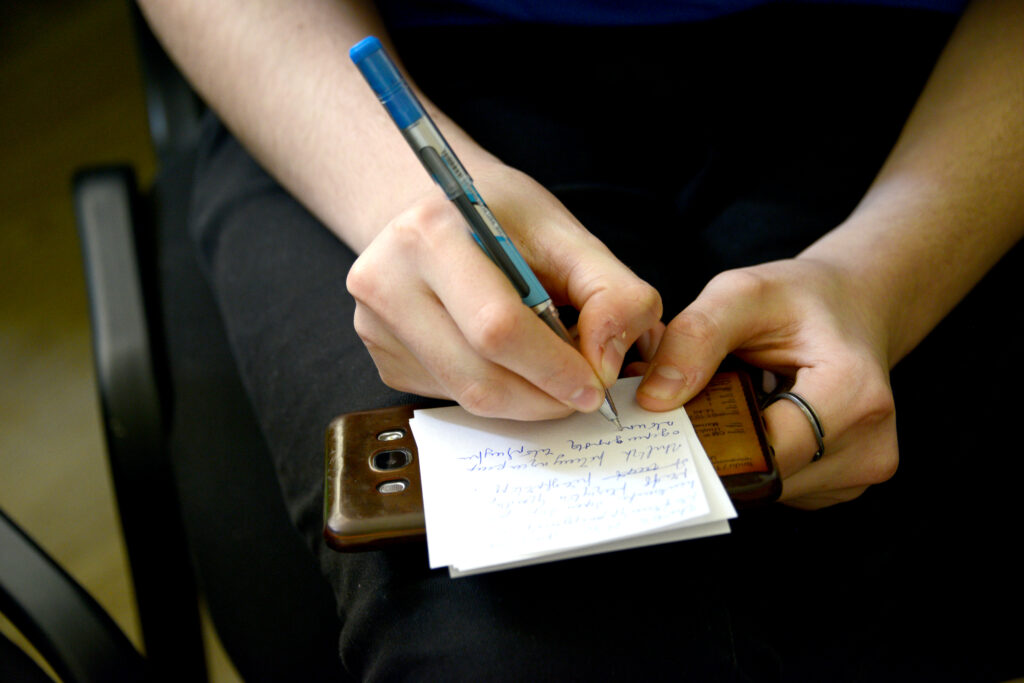 SKYE club in Ararat province
SKYE club in Ararat province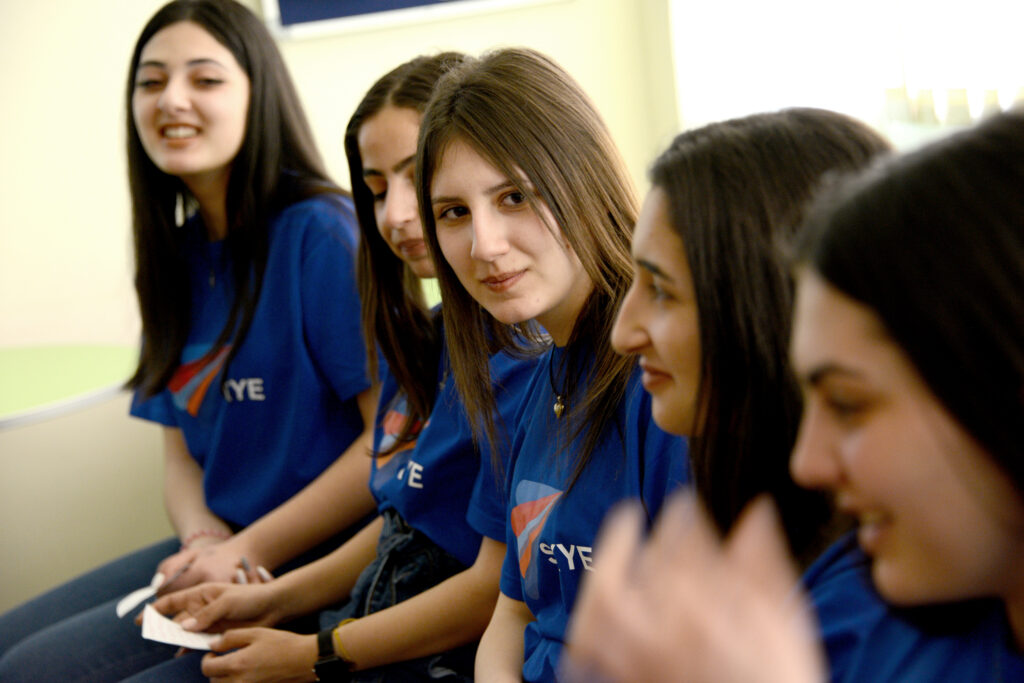 SKYE club in Ararat province
SKYE club in Ararat province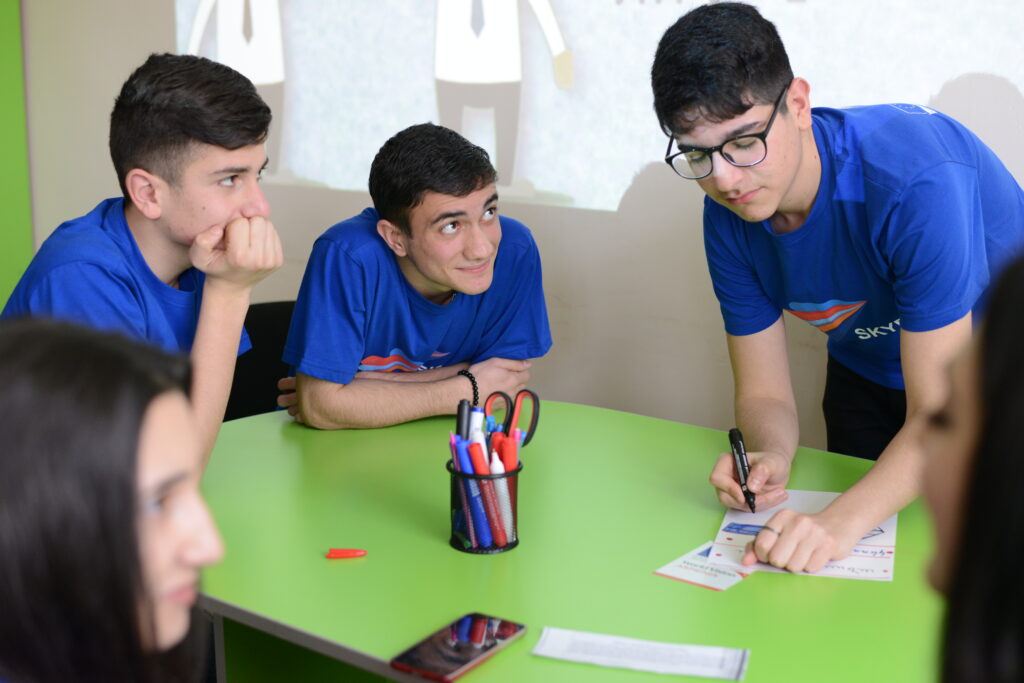 SKYE club in Ararat province
SKYE club in Ararat province
Among other topics, SKYE clubs also discuss gender problems, as violations of women’s rights in Armenia remain a serious problem.
“I was told that in Alaverdi, the province of Lori, a teacher attempted to hit one of the students when a classmate and SKYE club-goer grabbed his hand, saying he had no right,” Kristina recalls.
The project assistant believes that SKYE club members are more progressive, active and skilled than their peers. They know their rights and will not hesitate to stand up for themselves and others.
Author: Roza Hovhannisyan
Article published in Armenian, Russian and English by Lragir.am
MOST READ
SEE ALSO

No, time is not on Russia‘s side
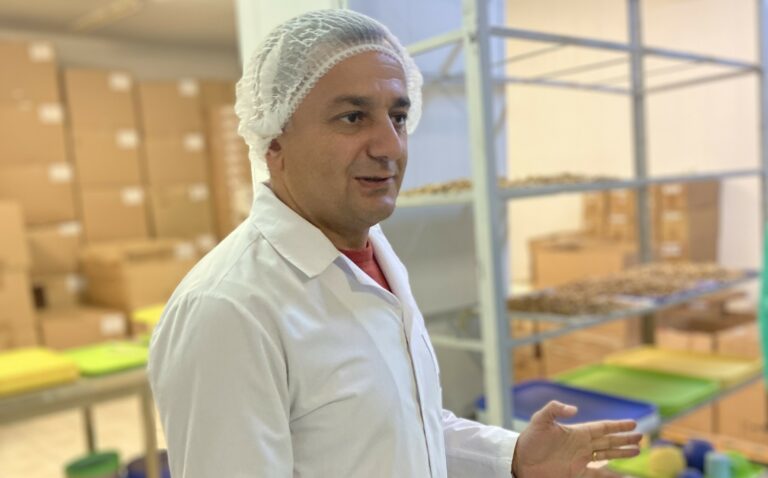
Sweet smell of chocolate
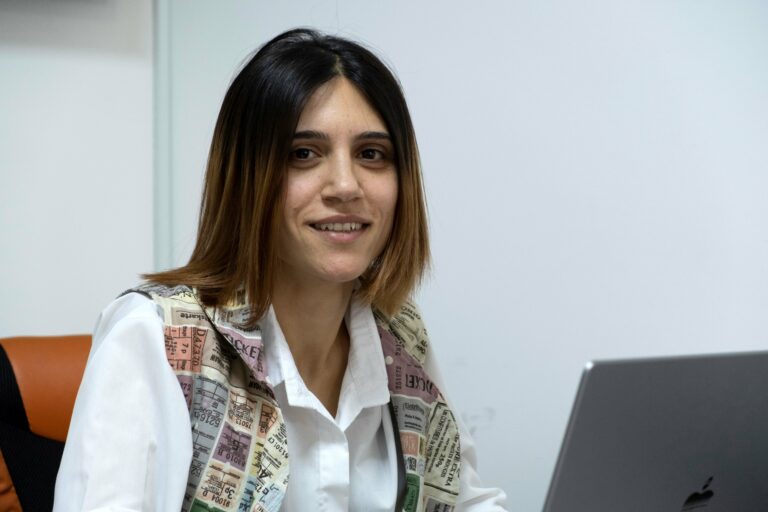
‘Be yourself, and always move forward’: Meri’s advice to young women in business

Be one step ahead of a hacker: check simple cybersecurity tips!
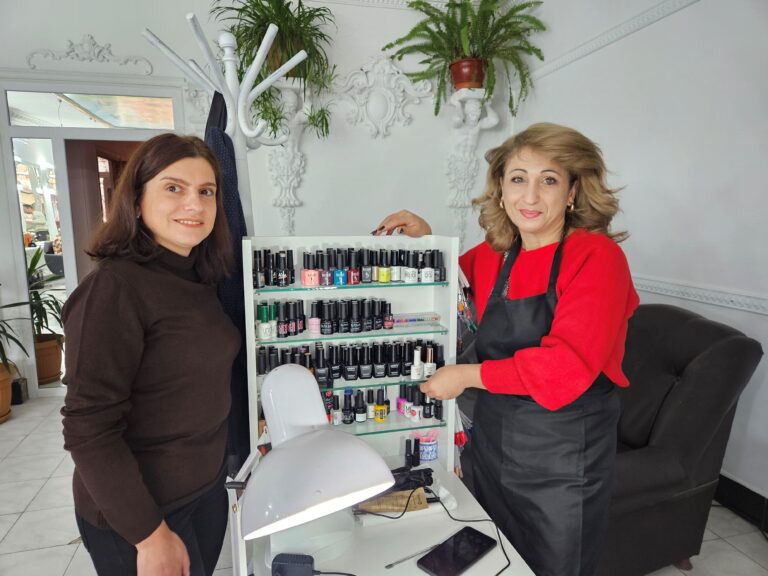
The power of skills: women paving the way to their own business in rural Armenia
More campaign pages:
Interested in the latest news and opportunities?
This website is managed by the EU-funded Regional Communication Programme for the Eastern Neighbourhood ('EU NEIGHBOURS east’), which complements and supports the communication of the Delegations of the European Union in the Eastern partner countries, and works under the guidance of the European Commission’s Directorate-General for Neighbourhood Policy and Enlargement Negotiations, and the European External Action Service. EU NEIGHBOURS east is implemented by a GOPA PACE-led consortium. It is part of the larger Neighbourhood Communication Programme (2020-2024) for the EU's Eastern and Southern Neighbourhood, which also includes 'EU NEIGHBOURS south’ project that runs the EU Neighbours portal.

The information on this site is subject to a Disclaimer and Protection of personal data. © European Union,







